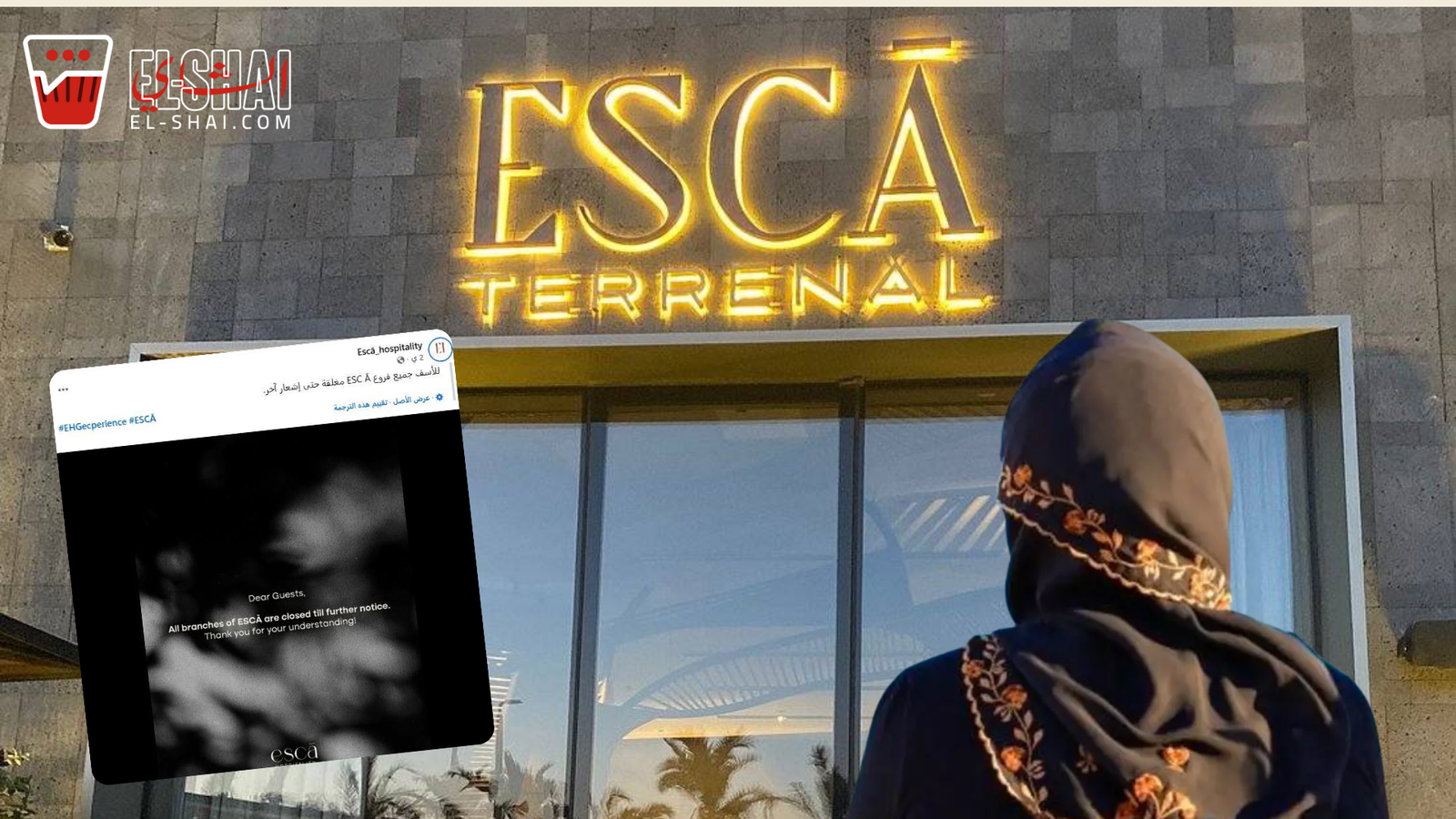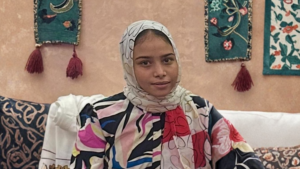When Escā Hospitality suddenly announced that all its branches were “closed until further notice,” social media erupted.
The post came with no explanation, apology, or timeline — and within hours, reports began linking the shutdown to yet another incident of discrimination against a hijab-wearing woman.
The Incident That Sparked Outrage
Multiple reports confirmed that Neseeme Al-Organi, daughter of businessman Ibrahim Al-Organi, was allegedly denied entry at one of Escā’s branches because she was wearing a hijab.
Witnesses told Saheeh Masr that a confrontation broke out after a receptionist enforced what was described as an “internal policy” that prevents veiled women from entering. Shortly after, several Escā branches in Cairo closed without explanation.
Less than two days later, the brand’s official account quietly posted that all branches were “back and operating normally.” No mention of the incident. No clarification.
It’s Not Just About Escā
While it’s still unclear if Escā’s sudden shutdown was directly linked to what happened with Neseeme Al-Organi, that uncertainty doesn’t change the reality on the ground.
There’s a longstanding, well-known problem across Egypt’s hospitality scene: many “luxury” restaurants and clubs continue to discriminate against hijab-wearing women.
It’s an open secret — some venues enforce unspoken “door policies” or hide behind vague excuses like “reservations only” or “fully booked” to avoid admitting they simply don’t allow veiled guests.
Whether Escā’s closure was connected or not, the outrage that followed shows how widespread and normalized this behavior has become — and how tired people are of pretending it isn’t happening.
Not the First Time, and Everyone Knows It
This isn’t the first time Escā has faced accusations of discrimination. In 2023, videos went viral showing hijab-wearing women being refused entry in one of their resturants.
The outrage was so widespread that the Ministry of Tourism and Antiquities had to issue a reminder that discrimination based on appearance or religious expression — including the hijab — is illegal.
What the Law Actually Says
After the 2023 backlash, the Ministry of Tourism and Antiquities issued a clear reminder that discrimination in any hospitality venue isn’t just unethical — it’s illegal.
Under Law No. 8 of 2022, which governs hotel and tourism establishments, Article 41 bans any form of refusal or mistreatment based on religion, gender, color, physical appearance, or attire — including the hijab.
Restaurants or hotels caught violating this law can face penalties ranging from fines and license suspensions to full closure. Yet enforcement remains inconsistent, and most venues continue these “unspoken policies” without consequence.
The Denial That Insults Everyone’s Intelligence
Despite years of documented incidents, Escā co-owner Mohamed El-Shakankiry publicly denied any wrongdoing, claiming that hijabi women are welcome and that the closure was simply “organizational.”
But this denial doesn’t match reality.
Egyptian women have shared countless firsthand accounts — being turned away, told their reservation was suddenly unavailable, or subtly rejected at the door the moment staff saw they were veiled.
These stories are not rumors; they’re a collective experience.
To dismiss them now is not just dishonest — it’s deeply disrespectful to the women who have faced this discrimination again and again.
A Pattern of Hypocrisy
Escā, owned by the Heggy Group, markets itself as a symbol of elegance and modern Egyptian luxury. But its repeated behavior exposes something uglier — a pattern of hypocrisy, where “refinement” becomes a cover for exclusion.
This has nothing to do with style or atmosphere. It’s about bias — and about establishments choosing to define “prestige” by who they keep out, not who they serve.
Accountability Can’t Be Selective
The reason this particular incident drew national attention isn’t because it was shocking. It’s because this time, the woman turned away was the daughter of a powerful businessman.
For years, countless Egyptian women have faced the same treatment in silence, simply because they lacked that level of visibility or influence.
Discrimination only becomes a scandal when it happens to someone influential — and that in itself is a problem.
The Ministry of Tourism and Antiquities has made its stance clear: venues that practice discrimination can be investigated, fined, or shut down.
But until those laws are consistently enforced — not just when headlines demand it — these “internal policies” will continue unchecked.
The Real Face of “Luxury”
Escā’s silent reopening is a reminder that in 2025, Egyptian women are still being judged not for who they are, but for what they wear.
Luxury doesn’t mean exclusion.
It never did.
And until Egypt’s hospitality industry accepts that, every “exclusive” venue that discriminates isn’t offering sophistication — it’s exposing its own ignorance.





